Bacteria are one of the simplest and oldest inhabitants of the Earth. The importance of bacteria in nature in general and in human life in particular is truly enormous. Let's take a closer look at the most important functions of bacteria:
Bacteria are great converters of biomass. Dead organisms, both plant and animal, are assiduously processed by bacteria, which convert the dead cells of the organisms into soil and fertilizer, thus maintaining the “biomass cycle” in nature. For example, leaves that fall from trees in the fall are exposed to bacteria and turn into fertile humus by the following spring. On this fertile soil grows the very tree that dropped its leaves in the fall.
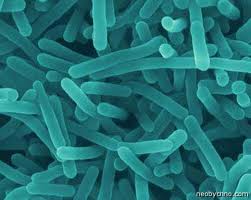
Bacteria are nitrogen absorbers. Only bacteria are able to assimilate nitrogen, which then enters the soil as fertilizer. Special enzymes contained in bacteria help them “assimilate” atmospheric nitrogen and mix it with other minerals. This is how life happens important process for all plants on Earth - nitrogen fixation.
Bacteria are suppliers of oxygen and carbon dioxide. The amount of oxygen in the planet’s atmosphere is the most important indicator necessary for the existence of all living beings. Bacteria constantly replenish the Earth's atmosphere with oxygen, so without bacteria you and I would most likely have suffocated long ago.
Bacteria are the creators of minerals. Many minerals are created over centuries and millennia from biomass with the participation of air, water, soil and bacteria. Therefore, the role of bacteria as creators of minerals is also very great.
Bacteria are the chefs of dairy products. Lactic acid bacteria are necessary for the coagulation of milk, from which people make kefir, cheese and yogurt. Without lactic acid bacteria, we would never be able to get all these wonderful foods.
Bacteria are the farmer's helpers. Special bacteria help in agriculture fight insect pests and weeds. To increase productivity, people also use special bacterial fertilizers.
Bacteria are not only friends and helpers. Many bacteria carry dangerous diseases such as cholera, tuberculosis or syphilis. There are even special bacteriological weapons of mass destruction in the world that can cause an epidemic.
As we see, the role of bacteria in nature is multifaceted and not always positive. However, without these invisible and simple organisms, life on our planet is simply impossible.
Everyone knows that bacteria are the most ancient inhabitants of planet Earth. They appeared, according to scientific data, from three to four billion years ago. AND for a long time were the sole and rightful masters of the Earth. We can say that it all started with bacteria. Roughly speaking, everyone's ancestry is traced back to them. So the role of bacteria in human life and nature (its formation) is very significant.
Ode to bacteria
Their structure is very primitive - most of them are single-celled organisms, which, obviously, have changed little over such a very long time. They are unpretentious and can survive in conditions that are extreme for other organisms (heating up to 90 degrees, freezing, rarefied atmosphere, the deepest ocean). They live everywhere - in water, soil, underground, in the air, inside other living organisms. And in one gram of soil, for example, hundreds of millions of bacteria can be found. Truly almost ideal creatures that exist next to us. The role of bacteria in human life and nature is great.
Oxygen Makers
Did you know that, most likely, without the existence of these small organisms we would simply suffocate. Because they (mainly cyanobacteria, capable of releasing oxygen as a result of photosynthesis), due to their large numbers, produce a huge amount of oxygen entering the atmosphere. This becomes especially relevant in connection with the cutting down of forests that are strategically important for the entire Earth. And some other bacteria produce carbon dioxide, which is necessary for plant respiration. But the role of bacteria in human life and nature is not limited to this. There are several more “types of activity” for which bacteria can safely be given
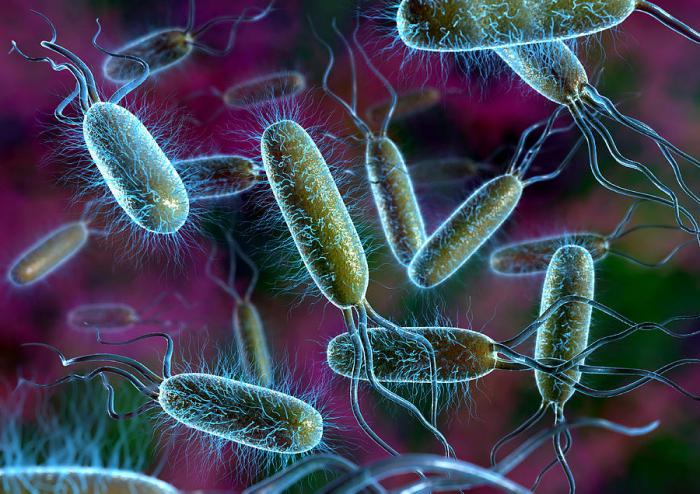
Orderlies
In nature, one of the functions of bacteria is sanitary. They eat dead cells and organisms, disposing of unnecessary things. It turns out that bacteria act as janitors of sorts for all life on the planet. In science, this phenomenon is called saprotrophy.
Cycle of substances
And another important role is participation on a planetary scale. In nature, all substances pass from organism to organism. Sometimes they are in the atmosphere, sometimes in the soil, supporting a large-scale cycle. Without bacteria, these components could concentrate somewhere in one place, and the great cycles would be interrupted. This happens, for example, with a substance such as nitrogen.
Lactic acid products
Milk has been around for a long time known to people product. But its long-term storage has become possible only recently with the invention of preservation methods and refrigeration units. And since the dawn of cattle breeding, people have unknowingly used bacteria to ferment milk and produce fermented milk products that have a longer shelf life than milk itself. For example, dry kefir could be stored for months and used as nourishing food during long treks through desert areas. In this regard, the role of bacteria in human life is invaluable. After all, if these organisms are “offered” milk, they will be able to produce a lot of tasty and irreplaceable food products from it. Among them: yogurt, curdled milk, fermented baked milk, sour cream, cottage cheese, cheese. Kefir, of course, is made mainly by fungi, but it cannot be done without the participation of bacteria.
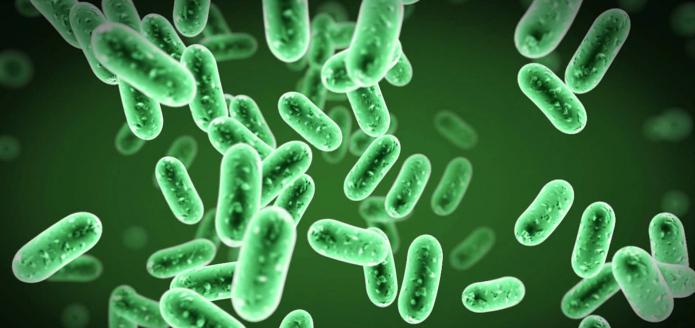
Great Chefs
But the “food-forming” role of bacteria in human life is not limited to fermented milk products. There are many more familiar products that are produced using these organisms. These are sauerkraut, pickled (barrel) cucumbers, pickles loved by many and other products.
The world's best neighbors
Bacteria are the most numerous kingdom of animal organisms in nature. They live everywhere - around us, on us, even inside us! And they are very useful “neighbors” for humans. For example, bifidobacteria strengthen our immunity, increasing the body’s resistance to many diseases, help digestion and do a lot of other necessary things. Thus, the role of bacteria in human life as good “neighbors” is equally invaluable.
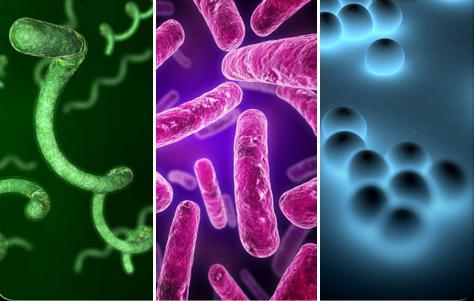
Production of necessary substances
Scientists were able to work with bacteria in such a way that they began to secrete substances necessary for humans. Often these substances are medications. So the therapeutic role of bacteria in human life is also great. Some modern medicines are produced by them or based on their action.
The role of bacteria in industry
Bacteria are great biochemists! This property is widely used in modern industry. For example, in recent decades, biogas production in some countries has reached serious proportions.
Negative and positive role of bacteria
But these microscopic single-celled organisms can be not only human assistants and coexist with him in complete harmony and peace. The biggest danger they pose is infectious. Taking residence inside us, poisoning the tissues of our body, they are certainly harmful, sometimes fatal, to humans. Among the most famous dangerous diseases caused by bacteria are plague and cholera. Less dangerous are tonsillitis and pneumonia, for example. Thus, some bacteria can pose a significant danger to humans if they are pathogenic. Therefore, scientists and doctors of all times and peoples try to “keep under control” these harmful microorganisms.
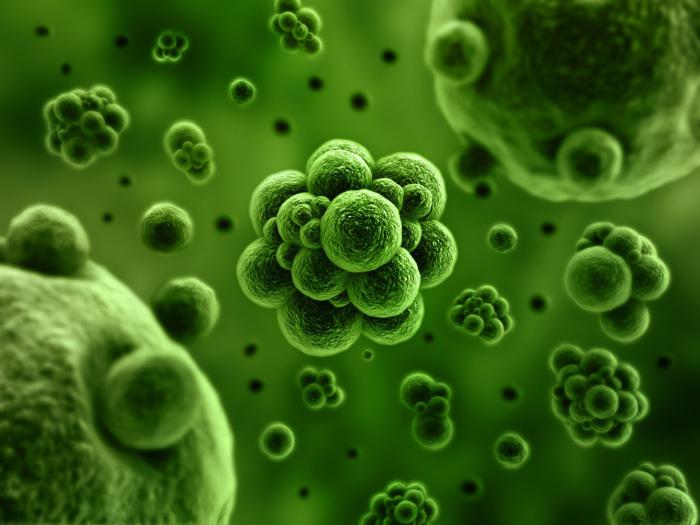
Food spoilage by bacteria
If the meat is rotten and the soup is sour, this is probably the work of bacteria! They start there and actually “eat” these products before us. After which these dishes no longer represent nutritional value for humans. All that's left to do is throw it away!
Results
When answering the question what role do bacteria play in human life, we can highlight both positive and negative aspects. However, it is obvious that the positive properties of bacteria are much greater than the negative ones. It's all about man's intelligent control over this numerous kingdom.
Distributed everywhere: in the air, in water, in soil, in living organisms. Bacteria have been found even on the ocean floor at a depth of several kilometers, in thermal springs, the water temperature of which reaches 90 degrees, in oil-bearing formations, that is, they are able to exist in conditions where other living organisms are not found at all.
Thanks to the vital activity of soil bacteria together with other organisms - plants, fungi - soil fertility is ensured. 1 gram of chernozem contains about 10 billion bacteria. They decompose organic matter left over from dead animals and plants that enter the soil. Thanks to this, they are formed inorganic substances, which can later be consumed by other organisms, including plants, and also release carbon dioxide, which plants need for photosynthesis. A large number of humus is formed by bacteria when fertilizing the soil with manure, when cultivating perennial and annual herbaceous plants, in which numerous roots die off. In the presence of oxygen in the soil, bacteria undergo the transformation of humus into minerals for nutrition of plants, including cultivated ones.
In order to provide better conditions for the life of beneficial soil bacteria, soil is treated and fertilized in agriculture. Thanks to loosening the top layer of soil, moisture is retained and the soil is enriched with air, which is necessary both for the life of cultivated plants and for soil bacteria. Also, the application of manure feeds not only cultivated plants, but also bacteria.
Cyanobacteria and some soil bacteria are able to absorb nitrogen from the air and convert it into a form available for use by plants. Nodule bacteria are one such group of bacteria. They settle on the roots of legumes and some other plants (sea buckthorn, mulberry). Nodule bacteria are able to absorb nitrogen from the air and produce organic nitrogen-containing substances, enriching the soil with them.
By digesting organic matter, bacteria ensure the purification of water bodies. But they can also provoke reverse process- “blooming water.” Cyanobacteria, green and purple sulfur bacteria, together with plants, form reserves of organic substances in nature, forming them from inorganic compounds. And cyanobacteria also release free oxygen into the atmosphere, which all living beings breathe. The formation of natural gas and oil deposits also occurred with the participation of certain types of bacteria.
Life on Earth is impossible without the vital activity of bacteria, since they participate in the cycle of substances in nature, carrying out chemical transformations that are not available to either animals or plants.
Bacteria, according to scientists, are the most ancient inhabitants of the Earth. They appeared on the planet in time immemorial and for a long time they were the only ones on it. Their structure is primitive. These are single-celled organisms, many of which still retain the main features of their ancestors who populated the Earth in ancient times. The importance of bacteria in nature and human life is even difficult to objectively assess.
A bunch of
Since the invention of the first powerful microscope (17th century), which made it possible to examine these small and sushi, many of them have been discovered. In science, they have been separated into a separate group, which is called “bacteria”. Before talking about the importance of bacteria in nature and human life, a few words about them themselves.
A little about bacteria
They may have different shape. Cocci - spherical, bacilli - rod-shaped, vibrios - like commas, spirilla - spiral-shaped, streptococci - chain, staphylococci - clusters, diplococci - rounded pairs. All of them are capable of moving using flagella or other means. Bacteria are found everywhere: even in drops of the purest water, in the soil, in the air, on stones and the surface of the skin. They are also found inside some other organisms, such as humans. Just one gram of black soil can contain millions of bacteria. They are unpretentious and extremely viable: they can withstand heating up to 90 degrees, do not die when frozen, rise into the atmosphere up to 30 km, descend kilometers into the soil, live in the depths of the ocean - the real masters of our planet! 
The importance of bacteria in nature and human life
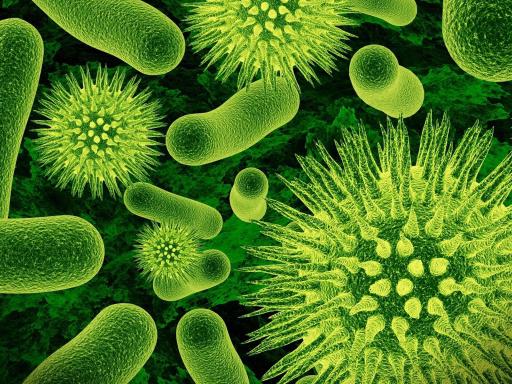
The importance of bacteria in nature and human life. Advantages and disadvantages
However, these microscopic organisms are not only our helpers. They cause harm to nature and humans. Bacteria carry some dangerous diseases: for example, cholera, tuberculosis and many others. They are capable of causing epidemics that can destroy humanity. Even various deadly things now prohibited in the world have been created. Therefore, a person needs to keep them under constant control.
These materials can be used for the lesson “The importance of bacteria in nature and human life” (grade 6).
The life that reigns around us is arranged in such a way that everything in it is interconnected. And the exclusion of one link from the general chain will entail changes in other components. Many science fiction films have been shot on this topic, many books and scientific works have been written. Therefore, when the general and nature are called huge, significant and invaluable, these are not just loud epithets. And since the existence of protozoa is so important, it is worth familiarizing yourself with their influence in the most detailed way.
First you need to understand who you are dealing with. After all, both enemies and friends are often so small that it is not possible to see them without a microscope. The structure of bacteria is quite simple:
- shell, often covered with a layer of mucus (for further formation of a protective capsule);
- cell membrane;
- immobile cytoplasm with ribosomes, various inclusions and a DNA molecule closed in a ring.
Sometimes flagella are present, responsible for movement. Despite such a simple structure, bacteria are considered one of the oldest forms of life on Earth. It is also striking that there are enough species of these tiny microorganisms to influence not only humans.
Microorganisms that we have “tamed”
Many bacteria live inside the body or on the skin. Some of them successfully help in digestion and the production of vitamins, and serve as protection against other microorganisms that try to penetrate from the outside with “unfriendly” intentions. Representatives of the prokaryotic kingdom that are useful to humans include E. coli.
Without the active intervention of bacteria, it would be impossible to eat cheeses, yoghurts, drink kefir, fermented baked milk and other fermented milk products. Their importance in medicine is simply invaluable, because some of their types make it possible to obtain strong antibiotics (tetracycline, streptomycin and a number of others). In both of these areas, it is worth noting the merit of mushrooms. The production of penicillin was a real breakthrough in medicine. And cheese lovers had the opportunity to enjoy Roquefort and Camembert varieties.
More harm than good?
Probably, in order to balance the meaning, nature made sure that a sufficient number of representatives of the simplest organisms spoiled the products and caused severe diseases or disorders. Moreover, their structure allows them to survive for as long as possible even with the most sophisticated methods of processing human products and household items.
Salmonellosis, dysentery, botulism, tuberculosis, venereal diseases are far from full list“troubles” that our proximity to bacteria promises us.
You should also be wary of other microorganisms. For example, the harm to health from the vital activity of some mushrooms can be no less significant.
Nothing passes without a trace
In nature, nothing happens for nothing, and if a microorganism receives nutrients from the earth or a plant, then it gives something in return or participates in a chain of sequential actions that play an important role in preserving life. So on a global scale?
- Creation of a fertile soil layer. are not the only ones working on this task. Can't do without the help of mushrooms. The structure of both allows them to decompose various organic substances entering the earth in order to transform them, including for their own consumption. Man also makes his contribution. It actively loosens and fertilizes the soil, helping not only cultivated plants, but also supporting the vital activity of fungi and bacteria.
- Nitrogen processing. Plants desperately need this element, but they cannot absorb it from the air. Nodule bacteria have a structure suitable for performing this work; in return, they receive the nutrients they need.
- Sanitary function. Bacteria are capable of purifying water bodies, as well as starting the reverse process.
- Participation in the cycle of substances in nature.
To sum up the conversation about the importance of bacteria and other simple microorganisms, it should be noted that there cannot be an unambiguous assessment of “good” or “bad”. It is extremely important for man and nature that a certain balance be maintained, and the development of science and own knowledge will help in its preservation.
